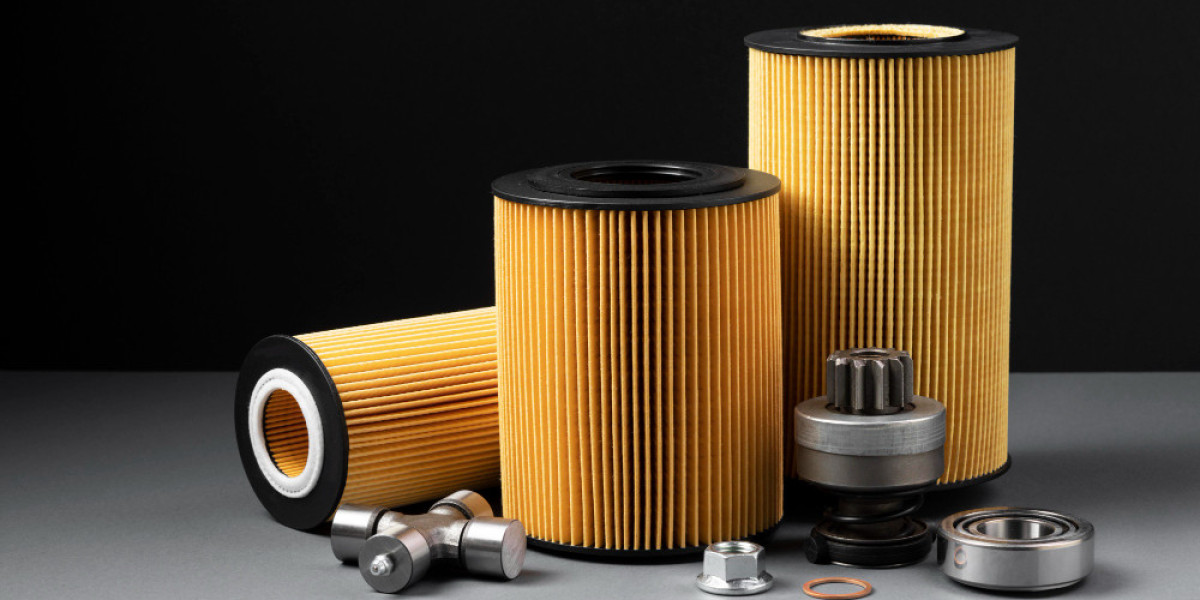Introduction
Hydraulic systems are essential in various industries, powering machinery and equipment with precision and efficiency. However, ensuring the proper functioning of these systems requires attention to detail, including the maintenance of components like the hydraulic oil filter housing.
1. Understanding Hydraulic Systems
Hydraulic systems utilize fluid power to generate force, commonly employing hydraulic oil as the primary medium for transmitting power. These systems are prevalent in industries such as manufacturing, construction, and automotive.
What are Hydraulic Systems?
Hydraulic systems use pressurized fluid to perform work, transmitting power from one point to another. They consist of a hydraulic pump, valves, actuators, and fluid reservoirs.
Importance of Hydraulic Systems
Hydraulic systems offer precise control over force and speed, making them ideal for applications requiring heavy lifting, precise movements, and consistent force delivery.
2. Introduction to Oil Filters
Oil filters play a crucial role in maintaining the efficiency and longevity of hydraulic systems by removing contaminants from the hydraulic fluid.
What are Oil Filters?
Oil filters are devices designed to remove impurities, such as dirt, debris, and metal particles, from hydraulic oil, ensuring optimal performance and preventing damage to system components.
Types of Oil Filters
Common types of oil filters include cartridge filters, spin-on filters, magnetic filters, and centrifugal filters, each offering unique advantages and suitable for different applications.
3. Importance of Oil Filtration
Effective oil filtration is essential for preserving the integrity of hydraulic systems and maximizing equipment lifespan.
Ensuring Equipment Longevity
Regular oil filtration helps prevent premature wear and tear on hydraulic components, extending the lifespan of equipment and reducing maintenance costs.
Preventing Contamination
Contaminants present in hydraulic fluid can cause abrasion, corrosion, and component failure. Proper filtration helps eliminate these contaminants, maintaining system performance and reliability.
4. Components of a Filter Housing
The hydraulic oil filter housing comprises various components designed to support efficient filtration and ensure durability.
Housing Material
Filter housings are commonly constructed from materials such as aluminum, steel, or stainless steel, chosen for their strength, corrosion resistance, and compatibility with hydraulic fluids.
Filtration Mechanism
The filtration mechanism within the housing may include pleated filter media, wire mesh screens, or magnetic elements, depending on the specific requirements of the application.
5. Factors to Consider
When selecting a hydraulic oil filter housing, several factors should be taken into account to ensure compatibility and optimal performance.
Pressure Ratings
The housing should be rated for the maximum operating pressure of the hydraulic system to prevent structural failure and oil leakage.
Flow Capacity
Consider the flow rate requirements of the system to ensure that the filter housing can handle the volume of hydraulic fluid circulating through the system.
6. Installation and Maintenance
Proper installation and regular maintenance are critical for the effective operation of hydraulic oil filter housings.
Proper Installation Procedures
Follow manufacturer guidelines for installing the filter housing, including torque specifications and seal replacement procedures, to prevent leaks and ensure a proper seal.
Maintenance Tips
Regularly inspect the filter housing for signs of damage or wear, and replace filters as recommended by the manufacturer to maintain optimal filtration efficiency.
7. Common Issues and Solutions
Despite proper maintenance, hydraulic oil filter housings may encounter issues that require attention.
Leakage Problems
Leakage around the filter housing can occur due to damaged seals or improper installation. Inspect seals regularly and ensure proper seating during installation to prevent leaks.
Filter Clogging
Clogging of the filter element can restrict oil flow and reduce system performance. Monitor filter condition regularly and replace as needed to prevent clogging and maintain efficient filtration.
8. Comparing Different Models
Several manufacturers offer hydraulic oil filter housings with varying features and specifications.
Popular Brands
Brands such as Parker, Pall, and Hydac are known for their quality filter housings, offering a range of models suitable for different applications.
Performance Comparison
Compare factors such as filtration efficiency, pressure ratings, and ease of maintenance when evaluating different filter housing models to find the best fit for your specific requirements.
9. Cost-Benefit Analysis
When considering purchasing a hydraulic oil filter housing, it's essential to weigh the initial investment against long-term benefits.
Initial Investment vs. Long-term Savings
While high-quality filter housings may come with a higher upfront cost, they can lead to significant savings over time by reducing equipment downtime, maintenance costs, and the risk of hydraulic system failure.
10. Future Trends
The field of hydraulic filtration is continuously evolving, with advancements aimed at improving performance, efficiency, and sustainability.
Advancements in Filtration Technology
Innovations such as nanofiber filter media, IoT-enabled monitoring systems, and eco-friendly filtration solutions are shaping the future of hydraulic oil filtration, offering enhanced performance and environmental benefits.
Sustainability Efforts
Many manufacturers are focusing on developing sustainable filtration solutions, including recyclable materials, energy-efficient designs, and biodegradable filter media, to minimize environmental impact.
Conclusion
In conclusion, the hydraulic oil filter housing plays a vital role in maintaining the efficiency, reliability, and longevity of hydraulic systems. By understanding its importance, selecting the right model, and implementing proper maintenance practices, operators can ensure optimal performance and minimize the risk of costly downtime and repairs.








